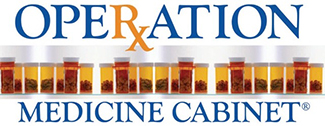Diabetes mellitus is a disease that affects how your body uses blood glucose. Diabetics have too much glucose in their blood, which can lead to health issues. There are a few different types of diabetes including diabetes Type 1, Type 2, and gestational diabetes. Symptoms of diabetes include increased thirst, frequent urination, extreme hunger, unexplained weight loss, presence of ketones in the urine, fatigue, irritability, blurred vision, slow-healing sores, and frequent infections.
Type 1 diabetes is caused by autoimmune beta-cell destruction. Type 1 diabetes can be referred to as juvenile onset diabetes. Type 2 diabetes is characterized by progressive insulin secretory defect and insulin resistance. It is commonly referred to as adult onset diabetes and makes up 90-95% of all diabetes cases. Risk factors for Type 2 diabetes include: first-degree relative with T2DM, overweight and obesity, physical inactivity, history of pre-diabetes, hypertension, cardiovascular disease, and polycystic ovary syndrome.
It is recommended that all patients with diabetes are on blood pressure medication and cholesterol medication in addition to medication to control their blood sugar. ACEi and ARB’s are used to protect the patient’s kidneys and control blood pressure. Cholesterol medication, specifically statins, are used to protect the patient’s heart. Heart disease is the #1 killer of patients with diabetes, so this medication is very important to add to the patient’s regimen. There are multiple medications used to control the patient’s blood sugar including:
-Sulfonylureas- glimepiride, glipizide, glyburide
-Biguanide- metformin
-Alpha-GIucosidase Inhibitors- acarbose, miglitol
-Thiazolidinediones (TZDs)- rosiglitazone, pioglitazone
-Meglitinides- repaglinide, nateglinide
-DPP-4 Inhibitors- sitagliptin, linagliptin, saxagliptin, alogliptin
-Resin Binder- colesevelam
-SGLT-2 Inhibitors—canagliflozin, dapagliflozin, empagliflozin
-Amylin Analogue- Pramlintide
-Incretin Mimetics- Exenatide, Liraglutide, Exenatide LAR, Albiglutide, Dulaglutide
-Insulins
It is important that diabetic patients are adhering to the following:
1. A1c < 7%
2. Blood Pressure <140/90
3. LDL Cholesterol <70
4. Quit Smoking
5. Immunizations
a. Flu
b. Pneumonia
6. Daily Feet Inspections
7. Annual Dilated Eye Exams
8. Exercise Program
9. 5-10% Weight Loss
10. Regular Dental Exams
11. Daily Aspirin For Vascular Protection
Long-term complications of untreated diabetes develop over time. The longer the patient has diabetes and the less controlled their blood sugar is, the higher risk they are at for complications to occur. Some complications include cardiovascular disease, nerve damage, kidney damage, eye damage, foot damage, skin conditions, hearing impairment, and Alzheimer’s disease.


